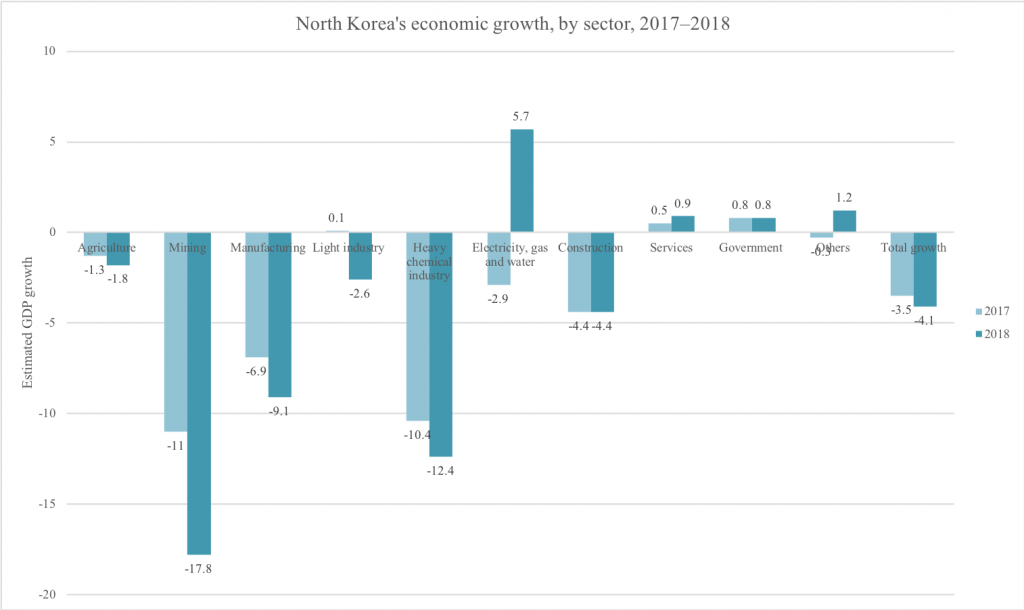By Benjamin Katzeff Silberstein
Fertilizer production is one area where UN sanctions appear to have rather dire unintended consequences. Daily NK reports:
Daily NK reported in February of this year that production at the complex was gradually falling.
UN sanctions and the ensuing ban on the import of oil, a key ingredient in chemical fertilizers, may have also been a factor in the factory’s closure, the source added.
FAILING TO MEET DEMAND
North Korea’s fertilizer production is currently meeting only one third of the country’s total demand. North Korea uses a total of 1.55 million tons of chemical fertilizer per year but only produces about 500,000 tons, Daily NK sources said.
North Korea relies predominantly on imported fertilizer. Farm workers reportedly prefer the fertilizer from the Hungnam Fertilizer Complex because it is superior in quality than fertilizer imported from China. The military was given priority for fertilizer produced at the complex.
The shortage of fertilizer is adversely affecting agricultural production, particularly given that this year’s production of fertilizer has fallen far short of demand, Daily NK sources said.
“Collective farms have had an overall poorer harvest this year compared to the last,” said one of the sources. “Farmers are blaming the lack of fertilizer for the poor harvest.”
UN SANCTIONS HAMPER PRODUCTION
North Korean authorities have made various attempts to normalize fertilizer production. For example, the authorities have installed large ammonia synthesis facilities and introduced 4,000 horsepower compression engines to help increase fertilizer production, Daily NK sources confirmed.
The import of a wide range of machinery and raw materials is banned under UN sanctions, however. Some North Korea observers argue that the ban on these imports only make it harder for North Korea to improve its agricultural production by itself.
“North Korea needs a dependable supply of coal, oil and electricity, and a total revamp of its fertilizer manufacturing facilities to normalize fertilizer production. None of this is possible due to UN sanctions,” a former North Korean agricultural official familiar with fertilizer production in the country told Daily NK. “If the Hungnam Fertilizer Complex remains nonoperational, it is highly likely next year’s agricultural production will be adversely affected.”
WORKERS REASSIGNED TO OTHER PROJECTS
Daily NK sources also reported that some 70% of the workers at the Hungnam Fertilizer Complex were sent to construction sites throughout the country after the complex shutdown. These construction sites included the Wonsan-Kalma Coastal Tourist Zone, the Hamhung-Wonsan highway, and the Tanchon Power Plant. Some workers were even sent to the fields to farm.
“The Hungnam Fertilizer Complex employed more than 10,000 workers. Lots of workers complained after they were sent to do other work following the shutdown,” one of the sources told Daily NK. “Many people wanted to work at the complex because it gave employees a stable supply of rations. That’s all in the past now.”
Article source:
N. Korea’s largest fertilizer complex no longer operational
Jang Seul Gi
Daily NK
2019-11-06
Note that the article confirms that rations are (at least in this case and most likely usually, if at all) distributed by enterprises as remuneration rather than through PDS centers.

